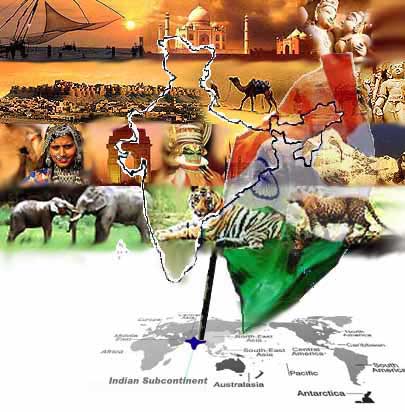
Read Only If You Have a Burning Desire for India’s Progress
My friend Gurpreet returned to India after working for twenty five-years in the West. On reading about the traumatic experience of an Indian American scientist in India — more about that later — I rang up Gurpreet to ask him what his experience had been in the three years that he has now spent in India.
He said ‘I am frustrated at two things in my immediate environment. The day to day irritations of life in India and the unprofessional work ethic’. Asked to give one example of the latter — the former is very familiar to us all – he gave an instance.
‘I was working in Atlanta. I once decided to go skiing in Switzerland for a week beginning 20th December. I had to make an important presentation to my Directors on the 19th December. I requested my colleagues to have a draft ready on 18th which I would scrutinize and offer suggestions before they finalized and gave me on the morning of the 19th…
‘I can say with the confidence born of my over two decades in the corporate sector in the US that such close finishes happen very often in the high pressure atmosphere that prevails in an achievement and result oriented society.
‘Always – as was the case at my Atlanta office — the staff WILL meet the deadlines. They will resent me reminding them or’ chasing’ things. In India, I will have to chase things up almost daily only to find that at the second last minute work is incomplete. I will then have to cancel my skiing, plead with the directors to postpone the meeting work all night and do the work myself, racing against time and just about stave off a heart attack with baby aspirins every hour.’
An Indian American scientist Shiv Ayyadurai was lured to come to India to work at the Council for Scientific and Industrial Research [CSIR]. Ayyadurai was invited under the ‘Outstanding Scientist/Technologist of Indian origin Scheme’ of the CSIR. He was mandated to evolve a Centre for Excellence at the Council and come up with ways to commercialize the research output at CSIR.
Ayyadurai and his colleague Sardana – a CSIR veteran – studied the myriad issues involved and circulated a paper with suggestions and sought the opinions of fellow scientists in CSIR. That was enough to upset the status quo-ists at CSIR. Ayyadurai was given the marching orders and shabbily ousted from his apartment at the campus. [This summary ousting is quite at variance with the way defeated politicians retain their sprawling official bungalows in New Delhi but that is not what matters to us here]
The reports say that scientists at CSIR were not happy at the very idea behind the scheme and it was against much opposition that the CSIT chief managed to get Ayyadurai into his council. The reports seem to indicate that Ayyadurai was a victim of a few pitfalls that bedevil India and prevent us from achieving our true potential. These are many but I shall focus on some issues here which arise from the Ayyadurai and Gurpreet experiences.
Firstly we tend to take a rather expansive attitude to time. The outcome of this is not only that we not treat punctuality and timely execution of work to be important. The even more serious and deleterious outcome is that we do not consider it critical that we stand by our commitments at all. This is what Gurpreet talks about. The much more tragic thing is that even when we do not abide by our commitments we find ‘ reasons’ to explain away our failure and are perfectly comfortable with our explanation — never mind what the consequences may be to others so long as we are not penalized. The ‘reason’ offered may not be acceptable in any result oriented organization but in India there will be endless arguments about this and at the end of the debate matters like this and others concerning work culture, will be brushed under the carpet till what Gurpreet experienced is repeated in an even more tragic fashion as in Ayyadurai’s case.
In CSIR case the pitfalls were: A status oriented rather than a scientific meritocratic culture, refusal to face the stumbling blocks to progress in CSIR as delineated by Ayyadurai and Sardana, a resentment at the arrival of an ‘outsider’ into the organization, a culture that resents questioning, that requires total subservience to people higher up in the hierarchy, a suspicion of change.
These become even more tragic in an institution like CSIR that has been set up with taxpayers’ money to spearhead scientific and technological research in a country that has any number of problems that demand technological solutions.
A recent survey of the world’s best universities finds no mention of India but says much about the growing stature of China. Statistics show that in 1998 China’s Universities produced 20000 research reports that were ‘cited’— an acknowledgement of their quality as assessed by peers. In 2008 the figure had jumped to 112000!! One of the authors of this ‘ranking’ report is Nian Lai Lu of Shanghai Jiao Tong University. He says ‘You should focus on teaching, research, service – not on any ranking position’.
CSIR is focused more on the ‘rank’ in the hierarchy that people hold and less on research. However it would be wrong to treat CSIR as an isolated case. The issue is one of the larger culture of India in which CSIR, our Universities and other institutions and people in general are embedded. Studies in development have repeatedly identified Cultural issues as probably far more critical to a country’s growth than monetary resources .There are a few path breaking studies involving cross cultural comparisons of many countries These show that India has much catching up to do. The task is enormous and, as Ayyadurai has found, hazardous to one’s career.
I will not be surprised if this article arouses hostility rather than soul searching. I can even wager that many publications will refuse to publish this. I recall Dr Abdul Kalam traveling to the US and finding that in that same flight there were several young Indians setting off to America for study, research or work. He got talking to them. By the time the plane landed on American soil most of the youngsters rescinded their decision and returned to India the next day. Dr Kalan had motivated them to live, work and do research in India.
What is the chance that some of these prodigal sons of India have met the fate that befell Ayyadurai? Dr Kalam himself has had to navigate the politico-Bureaucratic maze so deftly all his career, that he had little time for original scientific research, his veneration by us notwithstanding. Ask any scientist if any research report of Dr Kalam has ever been ‘cited’. .
K.R.RAVI



